
 By Carlos Jose Bourdjian
By Carlos Jose Bourdjian
Azad-Hye Special
DerHova was suddenly a familiar name in Armenia especially after the huge success of Sirusho?s ?Qele qele? that ranked Armenia in the 4th place at 2008 Eurovision Song Contest.
Haroutyun Derhovagimian or simply DerHova (also previously known as Mark Ryan) widely became known as one of Canada's prominent dance music producers and remixers during the 90?s. In 1997, after the huge success of the Billboard charting cover version of Alphaville?s classic hit ?Forever Young“, he established his own studio and continued supporting and producing local talents in different genres. In 2002 he moved to Armenia and since 2006 began to surprise the Armenian music world with massive big hits such as ?Qami pchi?, winner of Hit of the Year award at the annual Armenian National Music Awards in 2006 and “Ore Yev Nergan” which again won the Hit of the Year award at the 2007 Armenian National Music Awards.
Besides his artistic face, DerHova is a nice and easy-going person. He?s kind, honest as well ambitious and open minded. His creativity and passion of bringing new ideas to Armenian music is unlimited. Harout thinks that it is time for the Armenian music to avoid similarity and become more dynamic.
I met DerHova and had this discussion that I am pleased to share it with you my dear Azad-Hye readers.
Throughout the 1990?s you had released more than 200 recordings in various genres including house, pop and new age, with distribution through pretty much all the major labels. What suddenly brought you to Armenia in 2002?
I did pretty well during the nineties in North America, as well as across the ocean. Later I had some good proposals from the States, but for some reason I decided to come to Armenia instead. My move had nothing to do with music, I?d say I simply wanted a change in my life, and hopefully some inspiration in my song-writing.
And did you have any previous experience with Armenian artists at that time?
I had neither worked with Armenian artists nor produced Armenian songs until my move to Armenia. When I moved in 2002, I put together a compact studio setup in my Yerevan home, and continued to work with artists from abroad until about 2006. That?s when I decided it was time to focus on the Armenian music industry.
Your first production in Armenian music was the hit ?Qami pchi? (Let the wind blow) for the group H.A.Y.Q. How did this collaboration with the group begin?
Throughout the first 3-4 years in Armenia I did a lot of research, studying the Armenian music industry, and meeting most of the popular singers through my friend Arthur Ispirian. He was the person who introduced me to the guys from H.A.Y.Q. They presented a few of their songs, and ?Qami pchi? was the song I decided to focus on.
So you mean the song was already recorded at that time?
Actually they gave me a CD of their few songs, but ?Qami pchi? was sung live for me in the studio. I saw a great potential in that song, made quite a few alterations in the vocal arrangements, and reproduced the instrumental they had presented to me.
Did you start to work with Apricota after the H.A.Y.Q. experience?
The two main persons who started the H.A.Y.Q. project and I decided to put together a production team called Apricota in 2007. That was a year after ?Qami pchi? was recorded and released. I continued to produce songs on my own, but also collaborated with those guys on some other projects. Apricota was more of a team; working either individually or collectively with the same intention of bringing something fresh to the Armenian commercial music scene. Because of differences in workload, I decided to discontinue my participation in the team in mid 2008.
As far as I know you still don?t have an album that includes all your songs, except for a few promo CDs of songs you have produced or co-produced. Some songs are your compositions or co-compositions as well. Everybody knows what composing and arranging means, but people get mixed up with the production part. I mean if every artist in Armenia is responsible for all the expenses of a song production from A to Z, what is the role of the producer in that case?
In Armenia, the ?producer? is referred to as the person who funds the creation of a song from A to Z, meaning he/she pays the songwriters, arrangers, studio costs, etc. But abroad, the producer (not to be confused with executive producer) is the person who oversees the entire process of arranging, recording, and mixing the song. He/she might look for musicians to play in a song, direct them with what they should play, and so on. Nowadays, most producers are also arrangers who can make or break a song. A good producer can take a not so great song and turn it into a hit.
?Mi Badmutyun? (A story) was your first Armenian work as a composer. You had nicely mixed Armenian elements together with pop and rap. My question: Is there a rule for mixing such elements together? Especially nowadays there are a lot of Armenian pop songs where the ?Kochari? comes into a song out of nowhere to give the song an Armenian flavor.
My disadvantage in my work is my lack of musical education. Educated musicians learn about rules in music, whereas I?m not too aware of such rules. Music is an art form, right? Therefore for me, rules should be guidelines instead of set rules to obey. There are musically educated musicians who forget about the artistic aspect of this art form. I, more or less use my ears to guide myself and create what I find pleasant to my ears. And over the past 20 or so years, I?ve gained that experience to know what song will work with the public and what might not work.
And why haven?t you studied music?
Actually I?ve taken some violin, and excelled in a couple of years of piano when I was younger, but never had the patience to continue. I was constantly distracted, trying to write my own melodies rather than playing others compositions.
And what do you think about the Armenian music today?
I guess the major problem in today?s Armenian music is similarity, copying each other rather than creating. There is no progression throughout most of the Armenian pop compositions or arrangements, and everything is predictable. There is no spontaneity and no experimenting. On the contrary, see how fellow Armenians ?System of a Down? became a worldwide success. Their music is dynamic and unpredictable, constantly jumping from cold aggressive heavy metal to melodic and emotional.
I rarely listen to modern Armenian music. For me, music must be inspiring. It should stimulate your emotions and set some sort of mood, be it negative or positive. Most of the Armenian pop music out there is far from doing any of that.
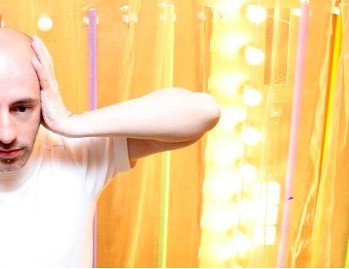 Was ?Qele qele? your most commercial hit?
Was ?Qele qele? your most commercial hit?
It was a big hit (smiling) and yes the most commercial one. But I think my song ?Ore yev nerga? (The day and today) performed by Sofi Mkheyan was a greater hit in Armenia.
Let?s forget for a moment that you composed / produced Armenia?s highest ranking song in the Eurovision Song Contest. As Harout Der-Hovagimian, did the show on the stage satisfy you?
Honestly no. I was not satisfied because the show was not dynamic at all. The music video for the song included a bunch of dhols (the Armenian drum). I would?ve liked to have seen the same thing at the Eurovision performance. Visually there was a lack of dynamics, which I had provided in the song?s arrangement. The dance choreography was far from what I would?ve liked to have seen on stage.
And after the success of ?Qele qele? did you get any collaboration offers from outside Armenia?
Yes, I got quite a few offers from Europe, including ones related to writing songs for other countries to represent at future Eurovision contests.
As a composer and producer, do you believe that you should be involved in other details besides music? Like being present at music video shoots, or even before the shoot, for example coming up with ideas for the music video? I guess you were not satisfied with Shprot?s ?Yeghir azad? (Be free), though it was better and far from her previous risqu? clips.
No, it?s not that I didn?t like the music video, but yes I would?ve liked to have participated in its direction. There?s a lot of egoism and stubbornness in the industry in Armenia. Collaborations hardly work. I always try to give my opinions on certain aspects, and leave it up to the artists to take my ideas into consideration. I would?ve preferred a very simple and humble video for ?Yeghir azad?. The song had a message to get across to the audience. Visually it was too distracting. Professional and experienced directors know what kind of music video a song needs. There should be balance in the audio and video of a song. Most of the videos in Armenia lack that balance.
Beside professionalism, in your opinion, what is missing in today?s Armenian show business?
Show Business, what big words (smiling). What?s missing are freedom and creativity. We Armenians have many complexes, afraid to show who we really are. Artists need to be honest and expose their inner worlds, and strike the public?s interest in their uniqueness. Most of them are copycats; therefore I do not consider them ?artists?. The industry also lacks good managers, professional and smart musical artist directors, to get the best out of a singer. People forget that a singer is not only about singing a song and releasing a video. Firstly, a singer needs to figure out who he/she is; sing a song that best suits him/her; and needs to have some sort of an aura, some kind of a presence that attracts people. Like I mentioned before, production is very very important. The producer needs to understand who he/she is working with, and create a song that brings out that singer?s unique characteristics. There?s still a lot more; for example, how the singer speaks in interviews, how he or she carries him or herself, and so on. I?d say only a few percent of the Armenian artists these days have that essential package.
Hasmig Garabedian, DerHova and Carlos Bourdjian
Over the past 3 years you?ve worked with quite a few composers and singers in Armenia. Any artists you still would like to work with?
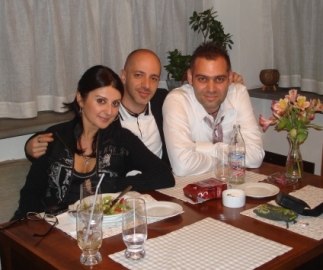
Hasmig Garabedian was one of the few artists I always wanted to work with. We recently collaborated with the song / video ?Qo siro timats? (Against your love), which was released this summer, 2009. Anush and Inga are also artists I would like to work with. Their style is far from anything I?ve tried before, so it would be a great opportunity for me to try something different. Bambir would be an interesting collaboration as well. Again, a style I?ve never tried producing before. Not too many other artists interest me.
What do you think about the Dee Jay trend that entered Armenia lately? And do you DJ often?
Both DJ culture and club culture are still fresh in Armenia. It hasn?t developed yet, but thanks to a few artists and promoters it is progressing quite quickly. It?s become a trend throughout the world for DJ?s to also create music. Some of the DJ?s here are also interested in that. Unfortunately the egoism I mentioned before is also found in some of these DJ?s. Some of them are quite stubborn with what music they play, and most of them refuse to play Armenian house songs, or songs produced by Armenian artists. I, myself, DJ once in a while, at specific parties, and people who?ve heard me play know that I like to bring some creativity into my sets. With either someone singing live while I play, or create my own remixes written specifically for that day.
Do you have plans of remaking Armenian standards or cover songs in a new way?
I recently created and played a remix of Patron Dash (laughs) at a party. I didn?t think it would work considering it?s viewed as a low-class ?rabiz? song, but the so-called elite crowd loved it. A few months ago I remixed a System of a Down song that had a great response as well.
With regards to remaking and releasing a popular Armenian song, earlier this year I produced a cover version of Sayat Nova?s ?Yis Qu Ghimetn?, or as we simply called it ?Ashkharhums? (In my world). That was the riskiest thing I?ve done in Armenia and most of the older crowd did not approve. But it was definitely a chance for the new generation to hear the song that was created some 200+ years ago. Over the years, the same song has been sung by other artists as well, but ours was the version that was mostly geared towards the young generation.
What do you say about your participation in the show 2 Asdgh with R.P.?
The show producers approached R.P. after hearing her beautifully perform the song ?Mardigi yerke?. Someone approached me to team up with her in that show and I agreed. Since the beginning of her career, which is not too long ago, R.P. has been considered an underground pop artist. Her songs and videos have always been quite ?out there?, meaning not for the masses. We predicted that uniqueness was going to be a problem in that show, and it later was. From the first day of the show, we were constantly in arguments with the producers because they wouldn?t allow us to perform the shows we wanted to. We were told, ?You are too different from the rest of the participants, and we can not allow that.? A pathetic excuse and a fact to back my opinion about a boring and non-creative industry. We were part of the show for about 2-3 months, and I?d say was definitely good PR for the both of us.
What new projects are you working on these days?
2009 has been quite a productive year for me. Other than R.P.?s ?Ashkharhums?, Hasmig?s ?Qo siro timats? and Davo?s ?Imn es? (You?re mine) songs, more recently there?s been Sofi Mkheyan?s ?Luys khavarum? (A light in the darkness), along with the remix version of Davo?s ?Imn es? which I produced with my good friend Lazzaro. Those will be followed by singles for Arame, Arsen Safaryan, Davo?s album, more singles for R.P., a few new artists in various genres, and more collaboration in the house genre with my friend Lazzaro from Sweden.
It was a pleasure to share your thoughts and worries with Azad-Hye readers. And it seems that a lot of work is still waiting for you. Thanks for this nice conversation and we wish you all the best.
Website: http://www.derhova.com/
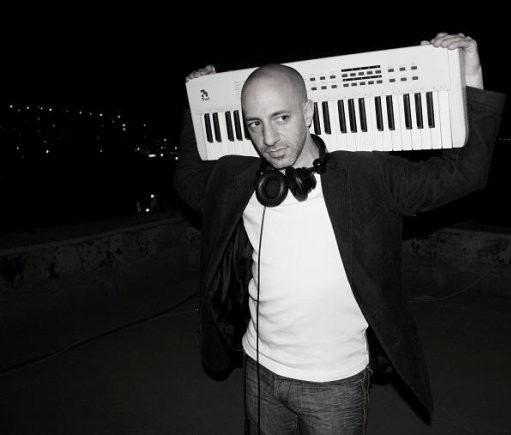 |
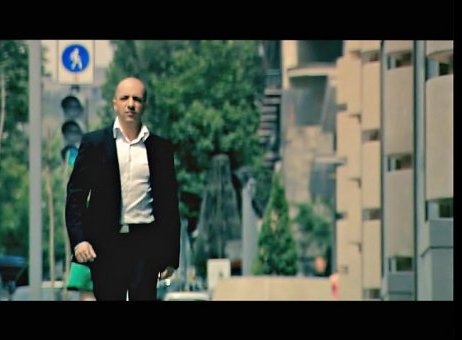 |
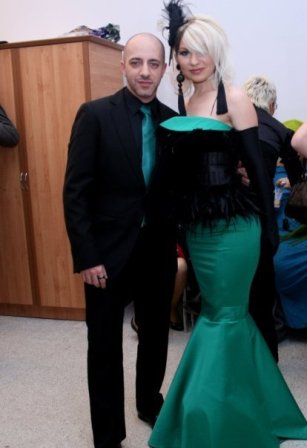 | 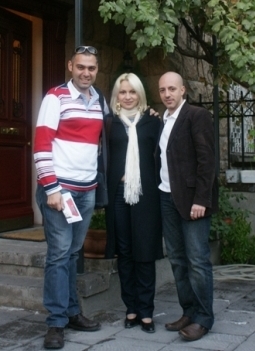 |
DerHova and R.P. | Carlos, R.P. an DerHova |
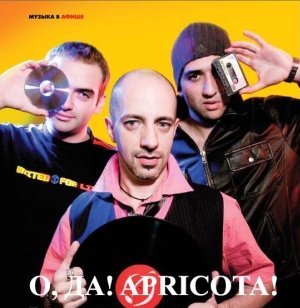 | 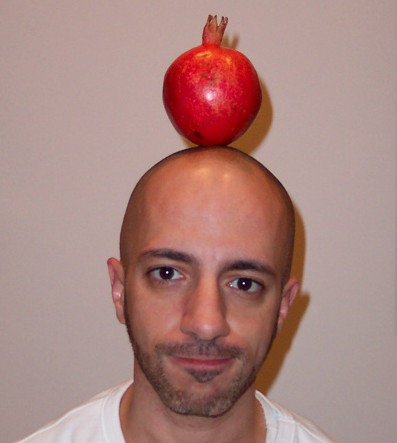 |
DerHova in Apricota | DerHova with pomegranate |
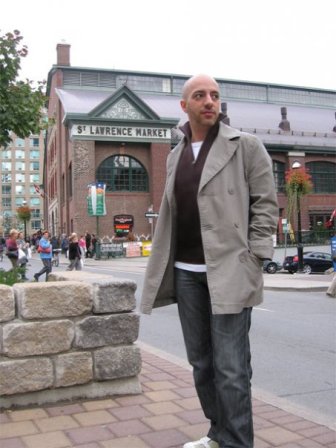 | 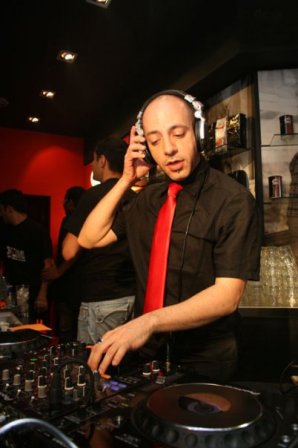 |
In Canada | DerHova as DJ |
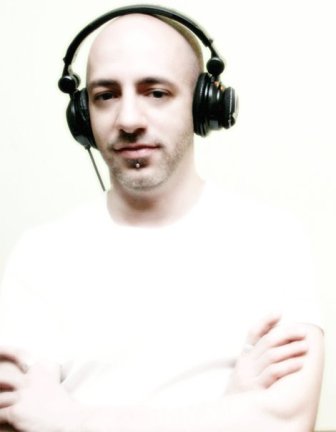 |

Այն ուղղությունը որին որ հետեվում է ՏերՀովան ինձ թվում է հաջողակ է և ճիշտ, իսկ Հայաստանին պետք են այդպիսի հետաքրքիր և տաղանդաւոր նախագծեր: Շնորհակալություն:
I would love to know more about his transition from this continent to Armenia.